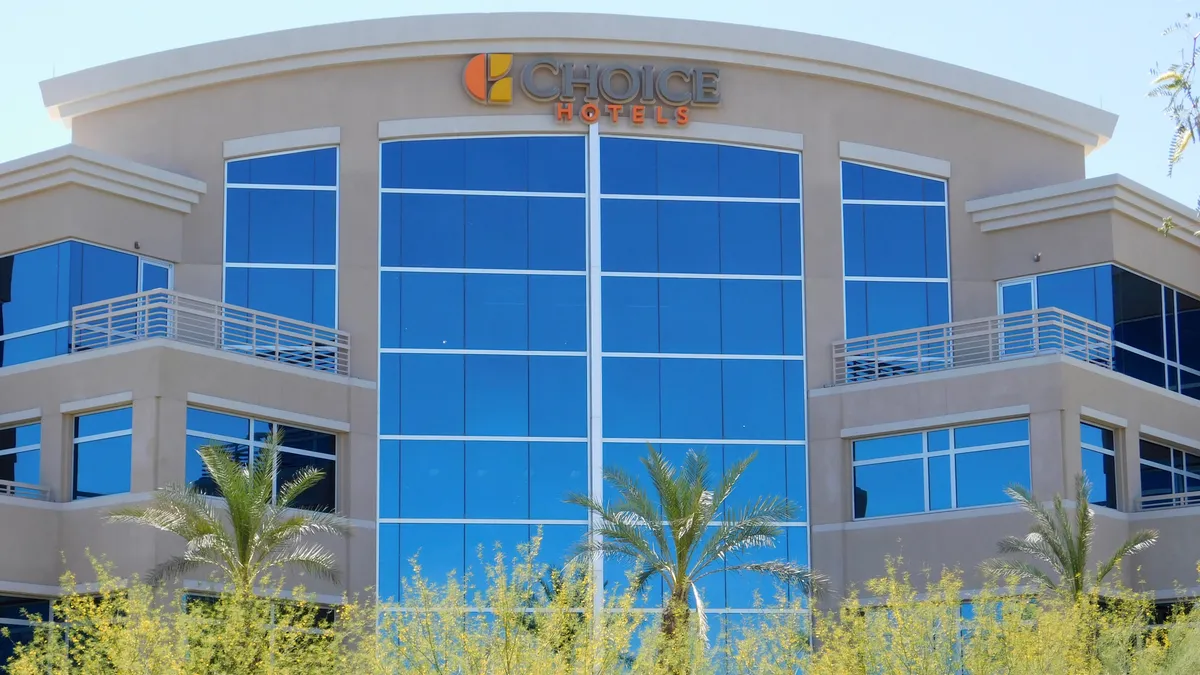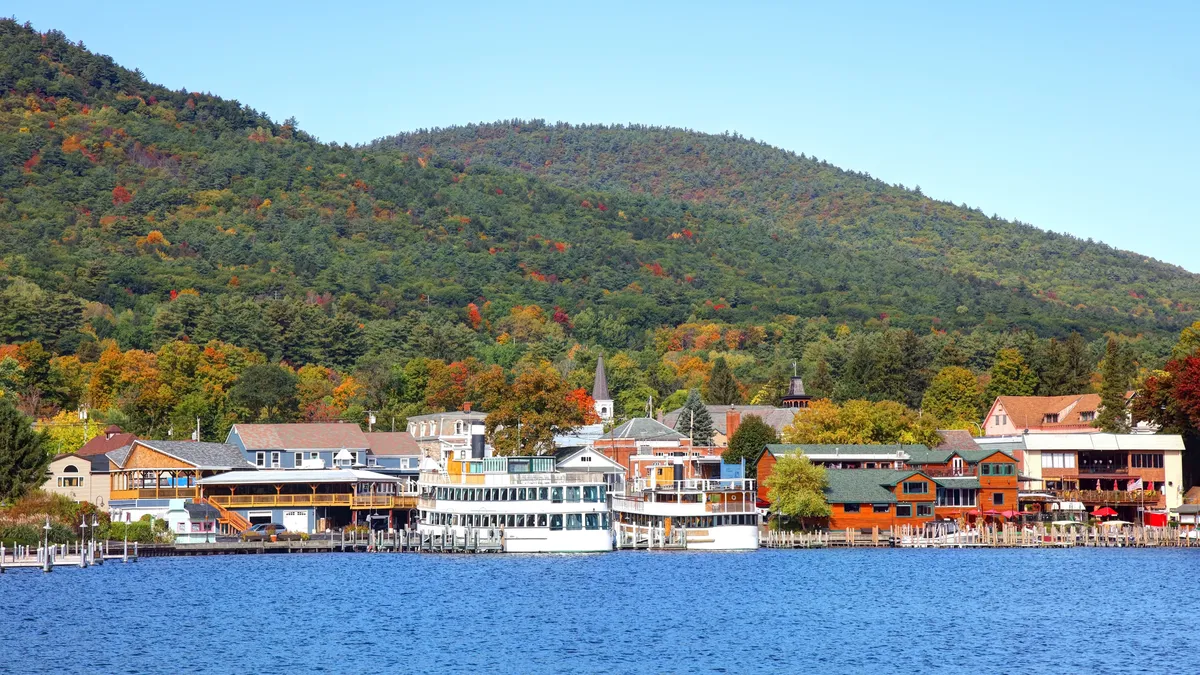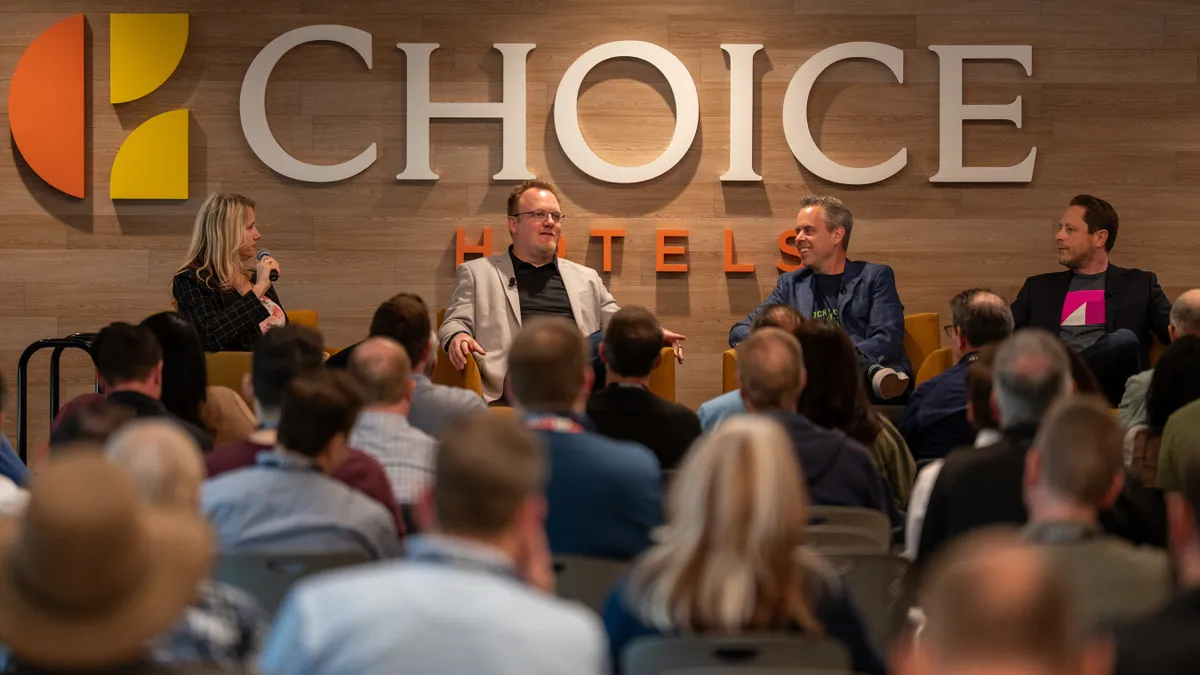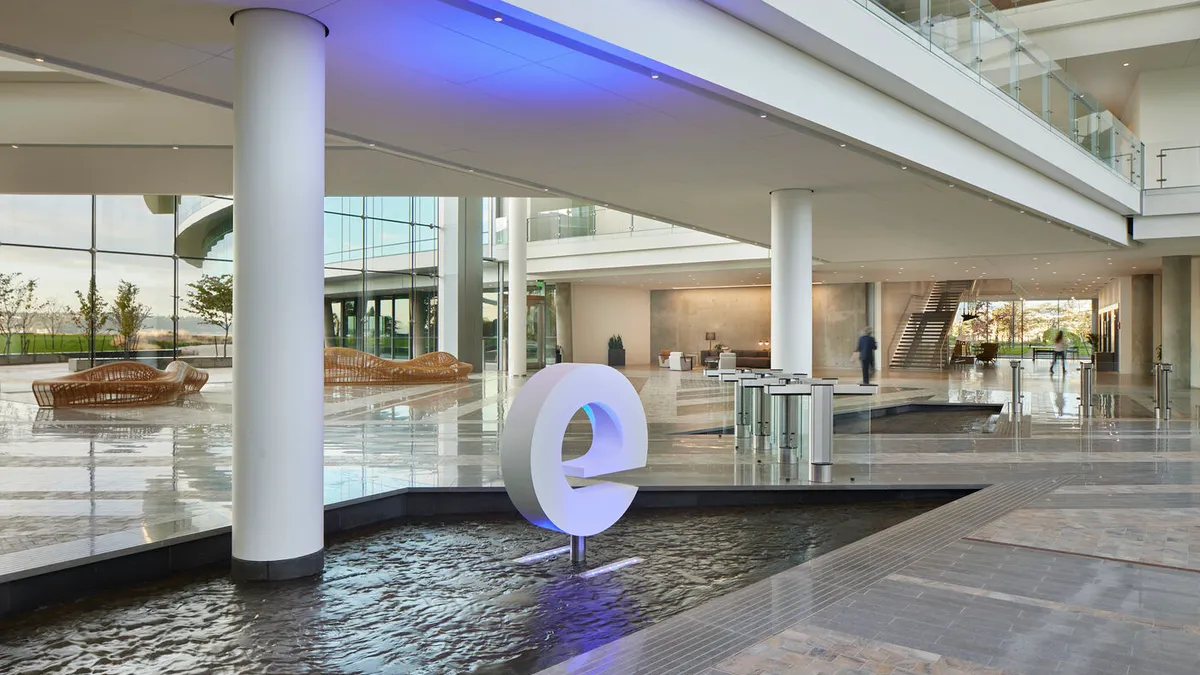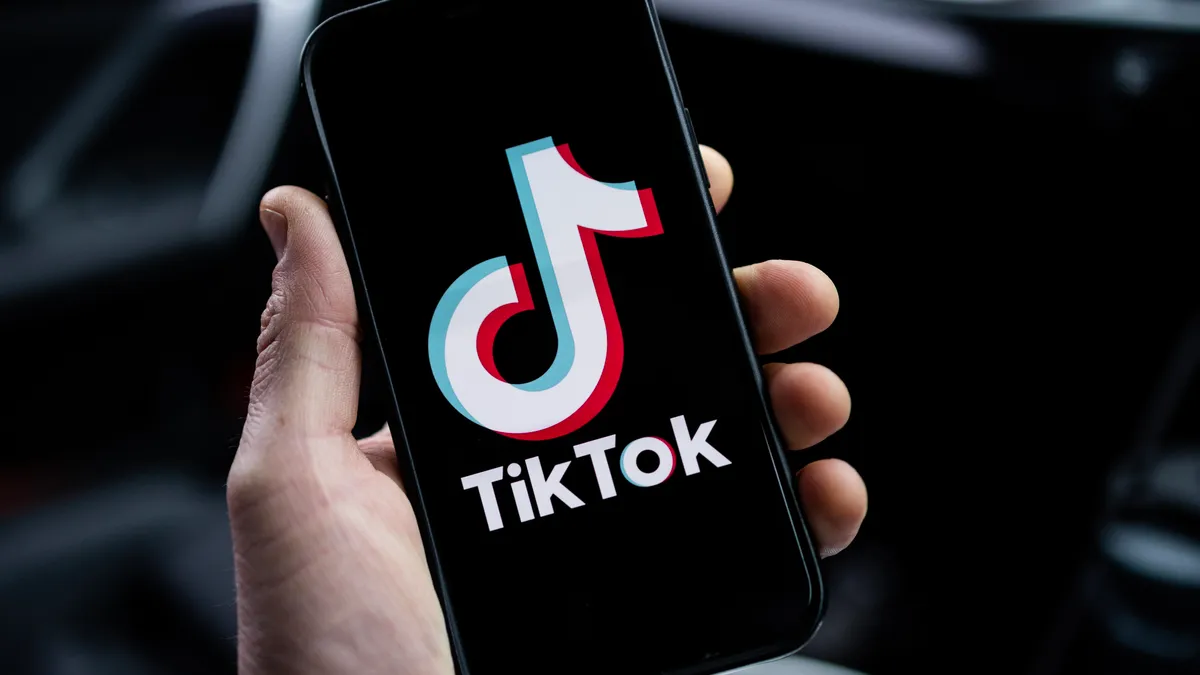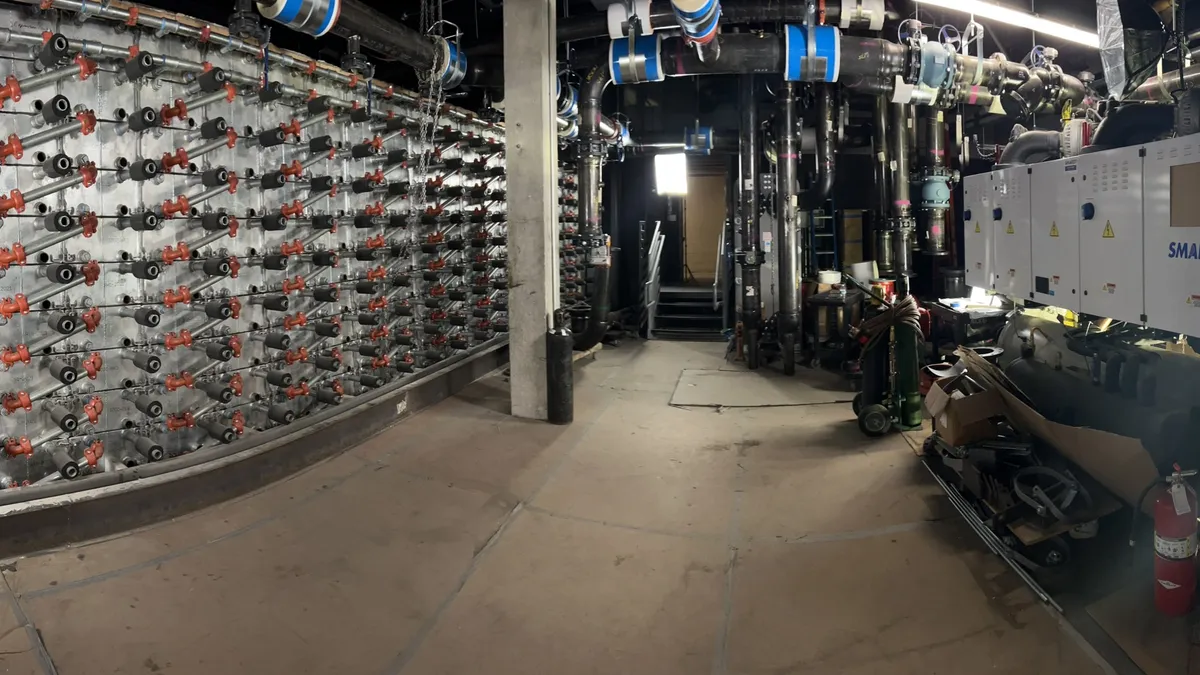Later this year, Choice Hotels International will power down its last on-premise server, closing the door on the data-center technology the hospitality company relied upon for decades.
The occasion will conclude a long migration and ground-up tech rebuild reaching deep into the company’s stack, from its central reservation system and customer-facing application suite to core processes.
“As we migrated, we did a combination of lift-and-shift and modernization,” Brian Kirkland, Choice’s CIO, told Industry Dive. “We’ve modernized our CRS, our websites and a lot of the core systems, and we have a data analytics platform that's purpose built for the cloud and a lot of tech that we're doing with AI that's obviously enabled by cloud.”
Shuttering the final data center coincides with the completion of a major business and technology expansion. Last summer, Choice finalized a $675 million acquisition of Radisson Hotels Americas, increasing its portfolio to 22 brands with more than 7,500 hotels.
“We aren't keeping very much from the Radisson tech stack,” Kirkland said. “My job was to move them into our systems as fast as possible, not to try to tie the two systems together.”
Like a lot of large industries, hospitality is dominated by legacy enterprises with the attendant technical debt that accumulates over time, as new applications are shoehorned into an aging stack. To remain competitive, modernization is imperative.
“This industry predates the internet,” Kirkland said. “We have competitors that are still using green-screen software to run their hotels — technology that is ripe for innovation.”
Migration spurs innovation
Choice leaned on AWS to rebuild its reservation system in 2014, before Kirkland joined as CIO in 2016. “We basically replaced the central brain of the company,” Kirkland said of the cloud-based solution his team deployed in 2017.
Two years later, in 2019, Choice began migrating its infrastructure, including over 1,000 applications, to AWS, where its property-management system and data analytics platform already lived.
“We committed at that time to start a journey to finish migrating everything we have to the cloud,” Kirkland said.
Migration spurred innovation. Choice engineers developed a mobile-first hotel revenue management solution rolled out last year, in partnership with SaaS provider IDeaS.
The solution provides property managers with insights every six hours based on factors impacting demand over the next year, such as when high-volume events like a Taylor Swift concert are happening nearby, Kirkland said.
“Goal one was getting into the cloud so that we would be able to leverage the tech out there,” said Kirkland.
Cloud unity
Hospitality is inherently dispersed, with individual franchises operating in various geographical locales at different price points.
Choice’s primary business is in midscale and extended stay, with brands such as Comfort Inn, Quality Inn and Sleep Inn under its corporate umbrella. Acquiring Radisson broadened the company's upscale segment footprint.
To avoid interoperability headaches and simplify its tech estate, the company gravitated to a single-cloud strategy, with AWS as its preferred provider.
That hasn’t kept the company from using Azure for Microsoft products and running HR systems and SaaS solutions in other clouds, Kirkland said. But the goal is to consolidate.
“Everything we build and everything that we host, manage and operate, we're moving to Amazon,” said Kirkland.
“The whole point is nothing's running in a data center where I have people plugging in wires and doing stuff that isn't really a competitive advantage,” Kirkland added. “I'll leverage AWS and allow them to throw their 250,000 employees at building technology that I can turn around and use to differentiate.”
From cloud to AI
Choice employs more than 500 technologists at its technology hub in Scottsdale, Arizona, where Kirkland has teams developing cloud-based solutions as they near the final stage of full migration and contemplate potential use cases for emerging tech.
“Cloud is one of the most powerful things that you can give an engineering group and one of the most dangerous things at the same time,” Kirkland said. “You can chase butterflies and build amazing, fantastic technology. But if you're not paying attention, you're going to end up with a Cadillac instead of the tool you need.”
With generative AI dominating tech talk, Kirkland is looking forward to assessing potential use cases when Choice hosts its annual tech training week in March at the Scottsdale campus.
“I'm betting money that I'm going to see a dozen-plus ChatGPT demos,” Kirkland said.
Kirkland does plan to enshrine one data-center artifact as a reminder of the past.
“I’m going to frame one of the servers as an homage, to say, ‘hey, this was our first CRS rack. This is what it used to be.’”
Interested in more CIO news? Sign up for CIO Dive’s newsletter today.



